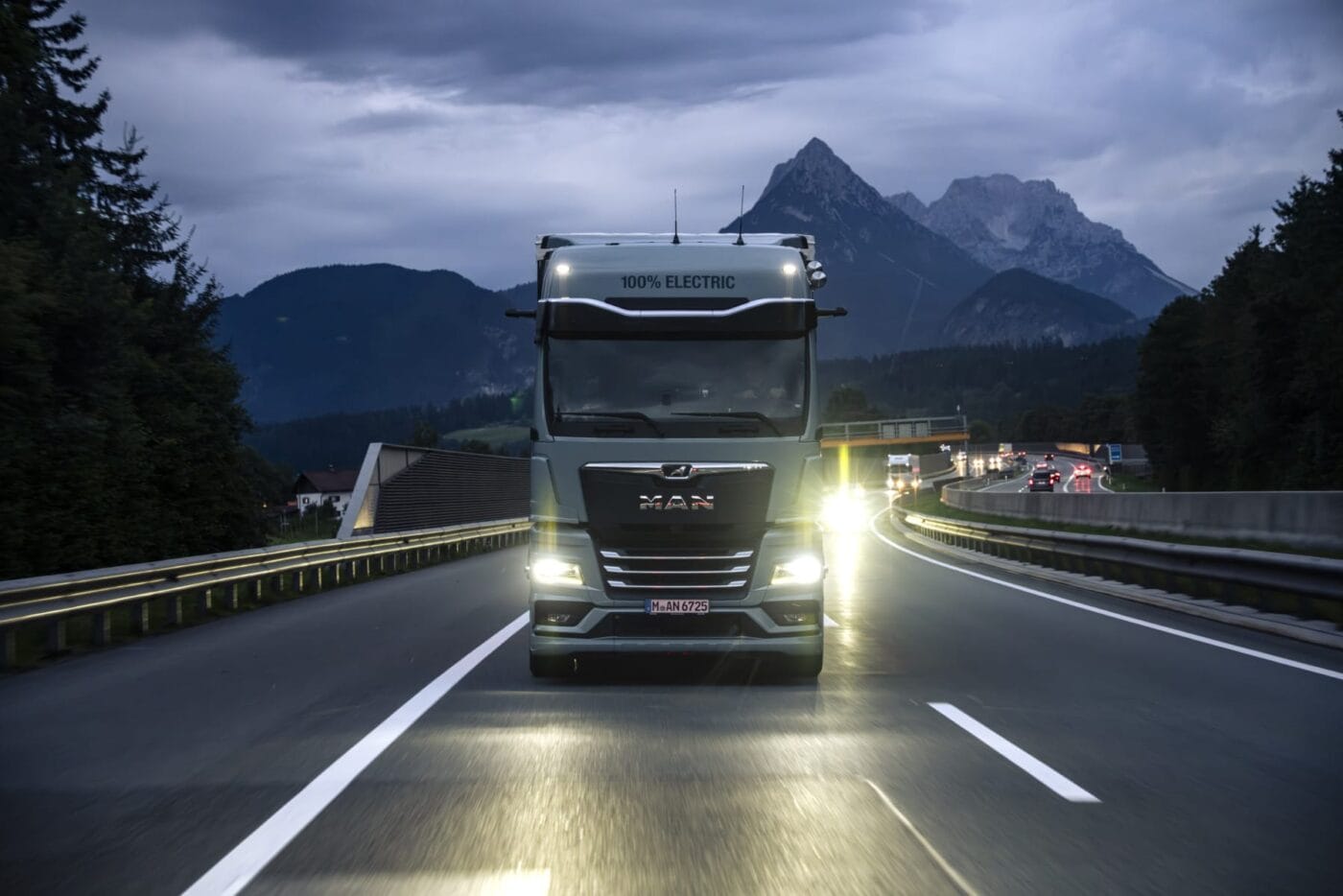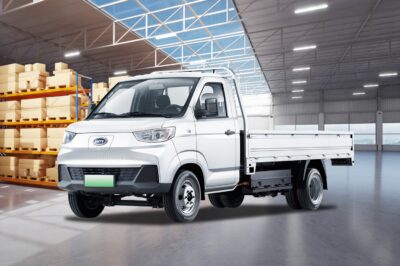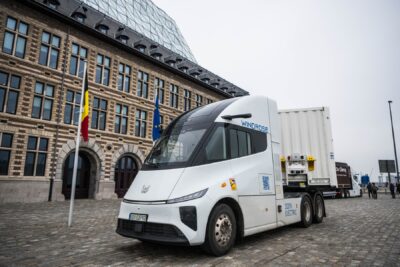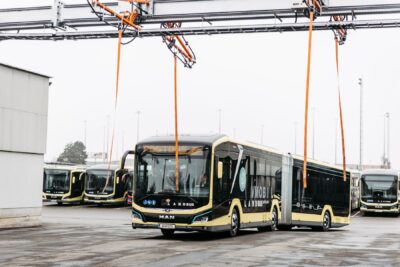MAN field tests electric truck by crossing the Brenner Pass at night
Fully electric trucks are exempt from the night-time driving ban on the Inntal motorway (A12) between Italy and Austria. MAN and Spedition Dettendorfer are taking advantage of this privilege, which has been in place since 2021, this July and August, to prove that goods can already be transported across the Alps using all-electric vehicles without any problems. This should not only reduce CO2 emissions on the route, but also avoid traffic jams and equalise the overall flow of traffic throughout the day.
As part of the four-week field test, Dettendorfer is using MAN’s new eTruck on the Brenner route, which entered mass production in Munich in June. In summer temperatures and with a planned charging stop, the tractor unit offers a daily range of up to 800 kilometres. This means that the Munich-Verona route can easily be covered in one night.
Electric trucks save on toll costs
Electric trucks have great potential, especially when it comes to climate protection. Assuming an annual mileage of 110,000 kilometres, a battery-electric tractor unit saves around 95 tonnes of CO2 per year. MAN calculates that the daily use of 300 electric trucks would correspond to an annual saving of around 28,000 tonnes.
The electrification of road freight transport across the Alps is also worthwhile from an economic point of view. Assuming the same mileage, up to 60,000 euros in tolls can be saved per year on German motorways. In Germany, electric trucks are exempt until the end of this year, after which reduced rates will apply. In Austria, they will pay up to 75 per cent less toll fees at night.
EU Transport Commissioner Apostolos Tzitzikostas recently recommended an extension of the toll reduction until 2031 in order to ensure investment security for logistics companies and to promote electrification in the commercial vehicle sector. Assuming a standard service life of three years in the logistics industry, according to MAN, the cost advantage of an electric truck compared to a conventional diesel is around 15 per cent on this route.
It is not only the toll costs that are decisive, but also the maintenance and energy costs. The electric drive is particularly efficient on the mountainous route due to the high recuperation rate of up to 40 per cent. In addition, no road tax is payable on electric trucks for a period of ten years. Another advantage is the twelve per cent lower noise level, which is perceived as being only half as high and should be a noticeable improvement for people living along the route.
“Electric heavy-duty logistics is revolutionising road freight transport – even under the most demanding topographical conditions that prevail in alpine regions. With this project, we are demonstrating that fully electric trucks are not only practical, but also set new standards in efficiency, sustainability and traffic control thanks to features such as recuperation and the possibility of night-time transport. Politics and industry must work hand in hand to make emission-free logistics a reality across the board,” said Frederik Zohm, Chief Development Officer at MAN Trucks & Bus.





0 Comments